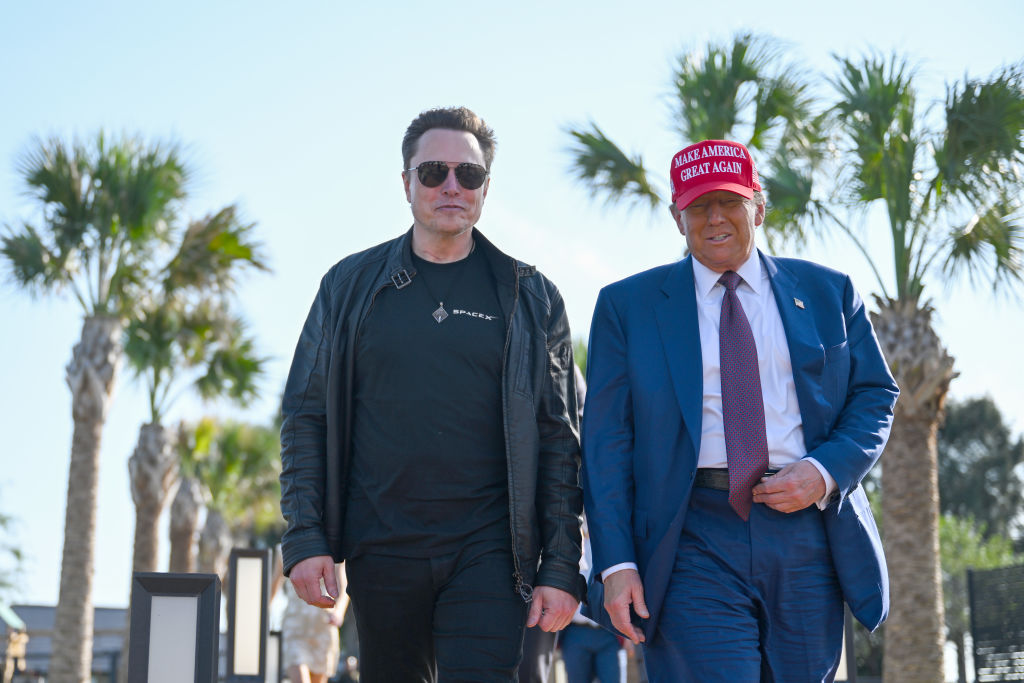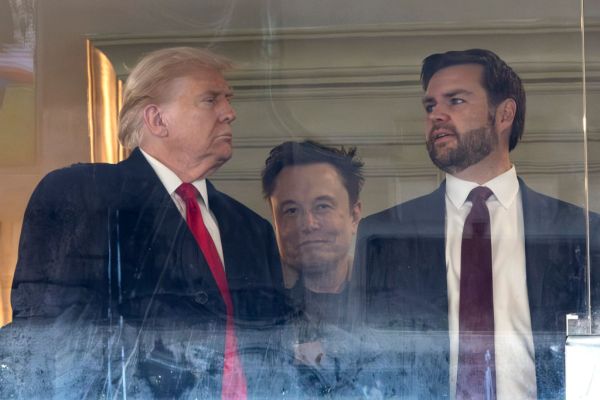Happy Friday! We’re officially murder hornet-free in America, the U.S. and Washington Departments of Agriculture announced last week.
It’s a Christmakkuh miracle.
Quick Hits: Today’s Top Stories
- An Azerbaijan Airlines flight traveling north from the Azerbaijani capital of Baku to Grozny—in the Russian region of Chechnya—crashed in Kazakhstan on Wednesday, killing at least 38 of the 67 people on board. U.S. officials reportedly believe the crash may have been caused by Russian air defense systems. The flight had deviated from its planned course away from an area in southern Russia, where Russian air defenses have frequently engaged to shoot down Ukrainian drones. While attempting to land at a small Kazakh airstrip on the opposite side of the Caspian Sea from Grozny, the flight crashed and burst into flames on impact. Russian state media claims the flight had been diverted due to weather.
- The New York Times reported on Thursday that in the immediate aftermath of Hamas’ October 7 attack, Israeli military leadership issued an order expanding the kinds of targets the Israel Defense Forces was permitted to target with air strikes, reportedly increasing the number of acceptable potential civilian casualties to up to 20 people per strike. The change apparently allowed the IDF to target not just high-ranking Hamas operatives, but also terrorists embedded in the civilian population. In previous conflicts, the Times reported that Israeli forces had approved strikes with potential collateral damage of fewer than five or 10 civilians at most.
- A Russian cargo vessel sank in international waters between Spain and Algeria on Tuesday, following a series of explosions that the shipping owner—a company linked to the Russian defense ministry—alleges was an “act of terrorism.” No group has claimed responsibility for the incident, which may have been caused by mechanical failures. Meanwhile, Russian authorities on Wednesday declared an emergency after two damaged tankers caused an oil spill impacting Russia’s Black Sea coast. The ships sank on December 15 after encountering a storm.
- Finnish authorities on Thursday boarded a Russian ship—apparently part of the Kremlin’s so-called “shadow fleet” used to help evade Western sanctions—in order to investigate damage to an undersea electricity cable that suffered an outage on Wednesday. A Finnish official revealed authorities were looking at the possibility of “grave sabotage,” saying they believed the ship’s anchor may have been intentionally dragged across the sea floor to damage the electricity cable and several other internet lines. Swedish police are investigating a similar incident from last month. Repairs on the Finnish-Estonian lines are expected to take several months.
- Russia launched a missile and drone attack on Ukraine’s energy infrastructure Wednesday morning, firing some 70 ballistic and cruise missiles and 100 strike drones, according to Ukrainian officials. The Ukrainian military said it shot down or electronically disabled most Russian drones and shot down nearly 60 of the missiles, though the strikes still caused significant damage to Ukrainian energy infrastructure resulting in widespread power outages. Ukrainian President Volodymyr Zelensky condemned the Christmas Day attack as “inhumane.”
- Some 1,500 people escaped from a prison in the capital of Mozambique on Wednesday during a riot that left more than 30 people dead, according to the head of the country’s police. The southern African country has faced mounting civil unrest following October elections that resulted in a victory for the ruling party, though opposition groups say the vote was rigged. Mozambique’s high court on Monday affirmed the result in the ruling party’s favor.
- U.S. consumer confidence fell unexpectedly in December, the Conference Board—a business research group that tracks business trends—reported this week. The group’s consumer confidence index—which economists had expected to rise in December—fell 8.1 points in the last month of the year, from 112.8 points in November to 104.7 in December.
- President Joe Biden vetoed a bill Monday that would have added 66 federal district judgeships spread over a decade to allow three presidential administrations to appoint them. The Senate unanimously passed the measure in August, and the Republican-controlled House of Representatives passed the bill in November, only after President-elect Donald Trump had secured a second term. Biden said the bill was “hurried” and failed to clarify key details of how the judgeships would be allocated.
The Tech Bro Takeover

“Any member of the House or Senate who votes for this outrageous spending bill deserves to be voted out in 2 years!” read a tweet from December 18.
During President-elect Donald Trump’s first administration, one might have expected such a declaration from the always-volatile account of the president himself. But in this go-round, the denunciation of the government funding bill—which was replaced by a smaller version that passed just before Christmas—came from a very different source: Elon Musk, the CEO of Tesla and SpaceX, owner of X, and close confidante of Donald Trump.
Musk’s foray into government funding negotiations revealed a new force in Trump’s orbit: Silicon Valley. It’s a culmination of a shift in the politics of the tech world, as growing dissatisfaction with the Democratic Party has led to increasing numbers of industry barons throwing their weight behind the Trump presidency. But Musk’s legislative intervention also shows how Silicon Valley’s priorities may differ from those of the more mainstream Republican Party.
During the first Trump term, Silicon Valley firms had an uneasy relationship with the White House, fueled by bipartisan anti-social-media sentiment and the generally liberal politics of technology workers. That situation changed dramatically in the intervening years, as Silicon Valley figures like Peter Thiel, the venture capitalist co-founder of PayPal, became increasingly involved in Republican politics.
Silicon Valley conservatism was supercharged during the 2024 presidential campaign. Trump named Sen. J.D. Vance, who worked in venture capital—including for Thiel’s firm, Mithril Capital, for several years—as his vice presidential candidate. Musk, who supported President Joe Biden in the 2020 election, began saying that he would vote Republican in 2022, supporting Vivek Ramaswamy in the 2024 Republican primaries. After the failed attempt on Trump’s life in Butler, Pennsylvania, in July Musk tweeted, “I fully endorse President Trump and hope for his rapid recovery, ” and founded America PAC, which supported Trump through the later months of the 2024 campaign.
Trump now leans on Silicon Valley, or at least networks connected to Musk, Thiel, and people associated with the venture capital firm Andreessen Horowitz, as a source of talent and advice. Tech figures are studded throughout the incoming Trump administration: Scott Kupor, a managing partner at the venture capital giant Andreessen Horowitz, will be director of the Office of Personnel Management; David Sacks, a VC investor, will be artificial intelligence and crypto czar; and Sriram Krishnan, a Musk associate, will be an adviser on artificial intelligence policy.
Musk himself expects to play some sort of prominent role in the upcoming administration. A week after winning the November election, Trump announced that Musk and Ramaswamy would lead the Department of Government Efficiency (DOGE, an acronym that puns on the name of a popular cryptocurrency, named after a viral Shiba Inu meme), an advisory committee tasked with cutting spending and streamlining the federal bureaucracy. “It will become, potentially, the ‘Manhattan Project’ of our time,” wrote Trump.
But Musk’s influence has already gone beyond the still-quite-vague remit of DOGE (which will not actually be a statutory department of the executive branch). Musk flexed his considerable influence in opposing the proposed spending bill on December 18, upending the plans of House Speaker Mike Johnson.
“Stop the steal of your tax dollars!” Musk wrote on X. “Call your elected representatives now. They are trying to railroad this thing through today!” Ramaswamy piled on, writing that the bill was “full of excessive spending, special interest giveaways & pork barrel politics.” But unusually for tweets from unelected private citizens, Musk and Ramaswamy’s opposition translated into Congressional action.
“Our constituents, the people who elected us, are listening to Elon Musk,” Rep. Andy Barr, a Republican from Kentucky, told the Wall Street Journal. “My phone was ringing off the hook today.” On CNN, Tennessee Republican Sen. Bill Hagerty said, “Thank God Elon Musk bought Twitter, because that’s the only way we would even know what’s in this bill.” It was a strange admission for a U.S. senator to make, but there was a kernel of truth to it: 34 Republicans in the House ended up opposing the final bill. Trump himself came out against the original version of the bill on that Wednesday, after Ramaswamy and Musk made their views known.
Johnson scrambled to come up with a Plan B. A smaller measure that would also, per Trump’s request, raise the debt ceiling, failed on Thursday. Democrats were quick to seize on the emerging dynamic between Musk and the Republican Party. “Republican leadership caved at the last minute to the demands of ‘President’ Musk,” wrote Connecticut Democratic Rep. Rosa DeLauro in a letter sent on Friday to Congressional leadership.
A third attempt finally passed on Saturday, shortly before a partial shutdown was set to begin. It was clear Johnson was less than happy in Musk’s involvement with the process. “You want to be Speaker of the House?” he claimed to have asked Musk. Johnson was joking, but the strain was evident.
It’s also unclear what, exactly, Trump thinks of all the press coverage of Musk. The president-elect famously hates appearing like he isn’t in charge, and he confirmed as much on Sunday at a Turning Point USA conference. “He’s not going to be president, that I can tell you,” he said, referring to Musk. “And I’m safe. You know why he can’t be? He wasn’t born in this country.” Future interventions by Musk, also accustomed to getting his way and being outspoken, might lead to more serious friction between him and the incoming president.
Over the weekend, another clash emerged between Trump’s Silicon Valley allies and other members of the Republican coalition. Far-right activist and social media personality Laura Loomer tweeted in opposition to Krishnan’s appointment to work on AI policy. “It’s alarming to see the number of career leftists who are now being appointed to serve in Trump’s admin when they share views that are in direct opposition to Trump’s America First agenda,” she wrote. “How will [we] control immigration in our country and promote America First innovation when Trump appointed this guy who wants to REMOVE all restrictions on green card caps in the United States so that foreign students (which makes up 78% of the employees in Silicon Valley) can come to the US and take jobs that should be given to American STEM students.”
Loomer’s post immediately sparked a debate between Trump’s tech backers, who generally support high levels of skilled immigration through the H1B visa program, and his supporters who want to see immigration levels lowered. “Our American culture has venerated mediocrity over excellence for way too long (at least since the 90s and likely longer),” wrote Ramaswamy on X, defending tech firms’ practice of hiring many foreign workers for high-skilled positions.
“If you force the world’s best talent to play for the other side, America will LOSE,” added Musk.
The debate might have stayed on X if it didn’t coincide with a congressional push to lift country-by-country limits on the number of green cards for high-skilled employment issued by the U.S.* “If you want my opinion on the topic, I think that every PhD in a STEM field that is awarded by an American university should come with a green card,” Rep. Jay Obernolte, a Republican from California, said earlier this month.
That bipartisan effort might run into countervailing forces within the incoming administration, which Loomer, to a degree, represents. Stephen Miller, who was Trump’s unofficial immigration czar in the first administration and is his incoming deputy chief of staff for policy, oversaw the tightening of restrictions on the H1B program, increasing the number of application denials during his first stint in the White House.
Trump, who has yet to weigh in on the current debate, campaigned against the program in 2016. “And it’s something that I frankly use and I shouldn’t be allowed to use it,” he said back then.
Both the shutdown fight and the debate over high-skilled immigration demonstrate that the entry of Silicon Valley executives into the Trump administration could be quite disruptive, to use the tech industry buzzword. Some have envisioned a techno-futurist model of Republican politics, created by an alliance of talent from Silicon Valley and the political power of the new Republican coalition. That’s certainly the vision of Musk and Ramaswamy, seen in their plan for DOGE.
“With a decisive electoral mandate and a 6-3 conservative majority on the Supreme Court, DOGE has a historic opportunity for structural reductions in the federal government,” they wrote in the Wall Street Journal last month. “We are prepared for the onslaught from entrenched interests in Washington. We expect to prevail.”
But the spending-bill saga, wherein social media brushfires lead to a muddled outcome that ultimately didn’t change much, may be a closer indication of what Silicon Valley’s White House beachhead will bring.
“We have a president, we have a vice president, we have a speaker. It feels as if Elon Musk is our prime minister,” said Texas Republican Rep. Tony Gonzales on Sunday. He meant it as praise, but with another few cycles of legislation-by-tweet, it might turn into a lament.
Worth Your Time
- We call it “Handel’s ‘Messiah,’” but in the New York Times, Charles King corrected the record on the iconic anthem. “It was born of one of the least recognized partnerships in music history but one of significant artistry, the Enlightenment-era equivalent of George and Ira Gershwin or Elton John and Bernie Taupin,” King wrote. “Handel wrote the music but the original idea and the libretto—‘the book’ as it would be called on Broadway—belonged wholly to Charles Jennens. ‘Messiah’ has endured for centuries as a monument to the possibility of hope. The biblical texts it draws from tell a story of unity and redemption. Yet it came about only because of two creators who, throughout their adult lives, disagreed on issues from religion to the single thorniest political matter of their day, the legitimacy of the reigning British monarch.”
- Recent data from the OECD showed that, compared to a decade earlier, literacy is slipping in much of the world, Sarah O’Connor reported for the Financial Times. These trends are not unavoidable or irreversible,” she wrote. “Finland demonstrates the potential for high-quality education and strong social norms to sustain a highly literate population, even in a world where TikTok exists. England shows the difference that improved schooling can make: there, the literacy proficiency of 16-24-year-olds was significantly better than a decade ago. The question of whether AI could alleviate or exacerbate the problem is more tricky. Systems like ChatGPT can perform well on many reading and writing tasks: they can parse reams of information and reduce it to summaries.” And there are risks: “Without solid skills of your own, it is only a few short steps from being supported by the machine, to finding yourself dependent on it, or subject to it.”
Presented Without Comment
Axios: Elon Musk Dubs Himself ‘Ozempic Santa’ as Weight-loss Drugs Go Mainstream
Also Presented Without Comment
Financial Times: China Steps Up Campaign for Single People to Date, Marry and Give Birth
Local governments are cold-calling married women to ask about their plans to have children and are handing out cash to parents to encourage them to have more than one child. Universities have been asked to introduce so-called love courses for single students, and regular articles appear in state media about the benefits of having children.
In the Zeitgeist
Netflix made its football debut on Christmas Day, featuring surprise appearances by Mariah Carey, Beyoncé, and—for a nice hit of nostalgia—a teaser for a forthcoming Happy Gilmore sequel with a … Travis Kelce cameo?
Toeing the Company Line
- On the site over the holiday: Kevin Williamson reflected on the wise men who visited an infant Jesus and our culture, Jonah Goldberg argued Elon Musk’s favorite phrase, “vox populi, vox dei,” is a dangerous lie, and Jennifer Huddleston explained what would happen if TikTok is banned.
- On the podcasts: Jonah Goldberg was joined by Tevi Troy to discuss the long tail of the Obama years on The Remnant and by Richard Reinsch on a subsequent episode to discuss reforming institutions from the inside out.
- On the site today: David Drucker explores the limits of Trump’s threats to primary GOP legislators, and Kevin Williamson discusses the embarrassingly low quality of Trump’s ambassador picks.
Let Us Know
What do you make of Trump’s new penchant for Tech Bros?
Correction, December 29, 2024: This newsletter originally referred to country-by-country caps on H1B visas rather than green cards.










Please note that we at The Dispatch hold ourselves, our work, and our commenters to a higher standard than other places on the internet. We welcome comments that foster genuine debate or discussion—including comments critical of us or our work—but responses that include ad hominem attacks on fellow Dispatch members or are intended to stoke fear and anger may be moderated.
With your membership, you only have the ability to comment on The Morning Dispatch articles. Consider upgrading to join the conversation everywhere.